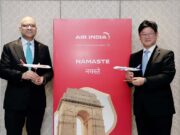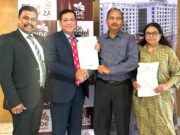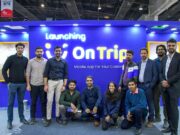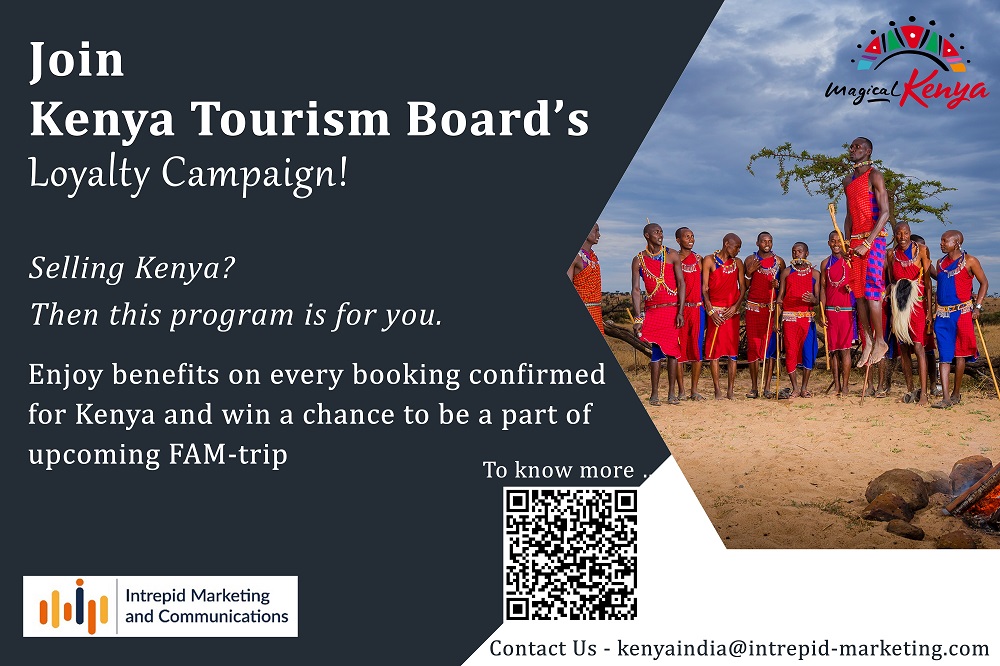With an unprecedented surge in the number of representation firms, the industry faces a dual challenge: differentiating services in an increasingly saturated market while safeguarding profitability against aggressive pricing strategies. This report delves into the collective insights gathered from top tourism representation companies across India, offering a comprehensive overview of the current state and future prospects of this vital sector.
– Vartik Sethi
Tourism representation, a sector that finds itself at a crossroads, yet imbued with untapped potential and opportunities for transformative change seeks guidance from its leaders. From consistent efforts in relationship building and providing up-to-date market intel to emphasising hard work, team coordination, and synchronisation, the industry leaders provide a roadmap for navigating the complexities of the current landscape. Their insights not only reflect the challenges faced but also illuminate the pathways towards a more resilient, sustainable, and prosperous future for tourism representation in India.
Priyanka Nijhawan, Managing Director, Nijhawan Representations emphasised on the diverse set of brands they have worked with. She said, “Our brand’s unmatched industry experience in hospitality and tourism representation, coupled with strong industry relationships across India, has been the cornerstone for past 21 years.” Specialising in luxury, leisure, MICE, and weddings, Nijhawan Representations has mastered the art of understanding and catering to the consumer psyche in varied sectors.
Underscoring BRANDit’s objective to provide disruptive sales, marketing and communication solutions to tourism brands in India, Lubaina Sheerazi, CEO and CoFounder, BRANDit, and her team boast an impressive ten decades of collective experience in the travel and tourism industry. “We are not just about changing perceptions; our focus is on driving desired outcomes for some of the most recognised brands in travel. With a robust blend of commercial awareness, trade experience, and marketing tactics, we provide customised solutions covering all aspects of travel and tourism,” said Sheerazi.
Following a strategic travel-corporate approach under her leadership, Munnmunn Marwah, COO, Think Strawberries ensures there exists a dynamic blend of top travel professionals and corporate achievers coming together. Marwah explained, “Our company is a dynamic venture, combining the finest travel professionals with senior achievers from top corporates. We offer 360-degree travel representation services, which is a testament to our commitment to innovation and a client-centric approach.”
Highlighting a longstanding mark in the representation business, Pranav Kapadia, Global Destinations shared, “With our rich legacy of over 15 years, we stand out through our extensive global network and our commitment to providing innovative and personalised solutions. Our focus on being a 100% B2B representation company, with ethical practices and a resourceful team, ensures complete and trustworthy client representation.”
Ellona Pereira, Head, AVIAREPS India brings in a unique global-local approach. Pereira shared, “Our affiliation with the global AVIAREPS Group, spanning 67 offices across 61 countries, empowers us with a vast network. This global-local approach enables us to execute targeted local initiatives while managing multi-market campaigns, a key differentiator in our service offering.”
Yeishan Goel, Group CEO, Travel and Hospitality Representation Services (THRS), highlighted their niche specialisation in representing global as well as Indian hospitality and tourism brands in the luxury lifestyle segment. “We are singularly focussed on delivering exceptional results with significant sector expertise in sales, marketing and digital solutions. Our in-house team located in Delhi, Mumbai, Bangalore and Dubai – has the finest experts across multiple disciplines working cohesively for greater and faster impact on our clients’ businesses. This has collectively built our reputation as the top choice for luxury hospitality brands worldwide.”
Arjun Mukundd, Associate Director, T&A Consulting, has fostered growth and partnerships with notable clients like Western Australia, Marina Bay Sands, and Sands Resorts Macao. As T&A Consulting celebrates 17 years, Mukundd’s leadership continues to drive the firm’s success in the tourism industry. He shared, “Our specialisation in advisory services across investment, trade, education, and tourism, combined with a commitment to embracing diversity and harnessing a vast knowledge pool, sets us apart.”
Influx of New Entrants
The influx of new, smaller players in the tourism representation industry has sparked a wave of strategic adaptations among established firms. What has also spiralled into a controversy is that the industry might find itself in a ‘Race to the Bottom’ if the industry’s intent revolves overly around price wars.
Goel from THRS views this as a positive development, he said, “Entry of new companies showcases the vitality of our industry. As a mature player, our focus is predominantly on results and innovation, versus client acquisition.”
Echoing a similar sentiment, Sheerazi from BRANDit emphasised the opportunities that arise from increased competition, she shared “This has encouraged us to constantly innovate and refine our strategies. We view competition as an opportunity for growth. At BRANDit, our focus is on delivering value through strategic partnerships and market insights, ensuring our clients receive bespoke solutions.”
Despite the proliferation of newer, smaller players, Nijhawan noted that their market strategy remains unimpacted and uniquely tailored to their clients’ needs. “The rise of new companies has not affected us, as our strategy revolves around the individual requirements of our clients, driven by their global strategy and revenue targets,” she explained.
Pereira, spearheading AVIAREPS, draws a parallel between the impact of new entrants in the tourism sector and the automobile industry in India. “Like the impact of brands like MG and KIA in India’s automobile industry, new entrants in tourism representation have led to healthy competition,” she added. Pereira highlighted the positive effects of competition, spurring innovation and fostering a culture of continual development.
Addressing the critical issue of competitive pricing strategies, Mukundd observes, “New players are reducing their prices to attract clients, which risks portraying India as an inexpensive option and can adversely affect businesses, especially in tender submissions where pricing is crucial.” He believes that a balance between competitive pricing and the rising cost of living and labor expenses is essential for fostering healthy competition and sustaining business growth in the industry.
Thinking Out of the Box
Adaptability and innovation are key drivers for success, particularly in response to the shifting competitive landscape. AVIAREPS, adapting to the evolving market, has strategically pivoted towards a B2B2C model. Pereira explained this shift, “Our strategy is to bridge businesses and end consumers, creating direct channels for interactions and transactions.”
Nijhawan emphasised the importance of flexibility and responsiveness to changing market conditions. “From a COVID to a post-COVID world, we’ve made multiple strategic shifts,” she noted, highlighting the transition from virtual show-around to online PAN India product training. In mid-2022, there was a further shift to offline modes, a strategic decision aimed at countering webinar fatigue.
On another front, Kapadia revealed an innovative approach tailored to the current market trends, he shared, “We launched ‘Wanderlust Marketing’ to represent unique products and bespoke experiences.” Their strategy involves a heightened focus on digital marketing and online platforms. “We’ve embraced technology, leveraging our CRM system to align with our goals. Our focus remains on showcasing our unique strengths, like our industry experience and global network, which sets us apart from the competition,” he added.
These strategies, while diverse, all point towards a common theme: the need for continuous innovation and a keen understanding of both the market and customer needs.
By analysing travel data, T&A Consulting identifies new markets and sales channels in India, continually adapting their approach based on the effectiveness of promotional efforts. Mukundd added, “Our research team’s insights enable us to devise effective marketing and sales strategies.”
Locking Horns Amidst Price Wars
The trends suggest that key players sought to move away from aggressive price competition towards a focus on service quality and client-centered strategies. As observed through the lens of various industry leaders, it reflects a deeper, more strategic response to the evolving market demands.
Offering a balanced view, recognising that while the price is a factor, Sheerazi explained that pricing should not be the sole determinant of value. This perspective points to a broader trend in the industry: a shift towards offering comprehensive, tailored services that meet unique client needs, moving away from price as the primary competitive tool.
Nijhawan exemplified this transition by prioritising the quality of work over engaging in price wars. This approach suggests a strategic move towards building long-term client relationships and focusing on sustainable growth rather than short-term gains.
When asked about maintaining service standards in the face of price competition, Goel shared, “We believe in enabling a deeper positive impact on our clients’ businesses with an approach that is data-oriented and outcome-driven. This directly contributes to our sustained long-term relationships, while demonstrating the strength of our performance in the region.”
Marwah outlined their approach to maintaining high standards, she explained, “Our success lies in delivering meticulously crafted strategies and campaigns that align with our clients’ precise needs and desired outcomes. We focus on hardcore sales while ensuring our marketing and PR initiatives contribute towards this overarching goal.”
Kapadia’s strategy of focusing on unique value propositions and leveraging client feedback for continuous improvement further underscores the industry’s move towards more client-centric models.
Besides, Pereira commented on the passion driving their service standards over a three-decade journey suggests a deep-rooted commitment to excellence in client service.
Highlighting their firm’s focus on an employee focused approach, linking team happiness with work quality. “Our HR team emphasises appreciating each team member, rooted in values like integrity and honesty,” stated Mukundd.
Sustaining Long Term Relationships
Think Strawberries has demonstrated its prowess in maintaining long-standing client relationships. Marwah elaborated on their success, “Since 2014, we have maintained a successful partnership with the Jordan Tourism Board. Our relationship with destinations like the Maldives and enduring partnerships with Sharjah and Disneyland Paris highlights our position as a benchmark in the travel industry.”
Kapadia takes pride in their long-term associations. He shared, “Our long-standing relationships with clients like General Travel New Zealand and Tourism Fiji exemplify our commitment to providing a diverse range of services and invaluable industry insights.”
Shedding light on their strategy for enduring client relationships, Nijhawan shared, “Consistent efforts in relationship building, providing up-to-date market intel, and swiftly changing strategies as needed,” she explains, are key components. The team’s proficiency in meeting revenue targets and developing innovative strategies for the untapped Indian market further strengthens their position.
Bringing on table a well-rounded strategy that combines market intelligence, data-driven insights, and a robust network to nurture and sustain client partnerships, Pereira shared, “Our strength lies in our deep understanding of the socioeconomic landscape, backed by data analytics and a comprehensive marketing approach. Our extensive network of agents and media has been pivotal in exceeding client expectations and fostering lasting relationships.”
Mukundd shared insights on maintaining long-term client relationships. “We focus on long-term benefits rather than short-term gains,” he explained. He highlighted the importance of transparency and effective communication in building trust, which is essential for these enduring relationships.
Challenges and Opportunities
Highlighting the challenges, Kapadia noted, “Global uncertainties, the rapid evolution of technology, and increased competition are significant challenges. We focus on delivering exceptional value and differentiation to navigate these challenges.” He anticipates future trends in the tourism representation sector to include enhanced digitalisation, sustainability initiatives, and a shift towards unique travel experiences.
Sheerazi noted India’s growing economy, increasing disposable income and a rising demand for unique international travel experiences. “We’re committed to connecting our clients with this burgeoning market,” she affirmed, indicating a focus on linking international boards and hospitality brands with the growing Indian market.
Goel highlights that the primary challenge facing THRS is talent acquisition. He exclaimed, “We are hiring impact professionals for several roles currently, and finding the right talent that aligns with our vision and culture is our biggest challenge.” He added, “India’s growing recognition globally as a burgeoning source market is opening up more opportunities for us.”
Pereira acknowledged the growing challenges and opportunities in the sector. “The biggest challenge is the shift where B2B is becoming the new B2C. Building strong relationships with industry partners is increasingly important in tapping the market’s potential
Looking ahead, Pereira sees promising growth opportunities. “The rise in outbound tourism from India sets the stage for substantial growth. The sector will likely see advancements in AI-driven tech tools and an increased presence of niche destinations and entities in the Indian market.”
The need to constantly innovate and stand out in a crowded market is a primary challenge for Nijhawan. Looking ahead, she sees immense growth potential in luxury and boutique hospitality, ski and wellness products, golf, yacht experiences, and offbeat destinations.
Mukund observed a lack of collaboration in the industry, presenting a significant opportunity. “Competitors with distinct strengths can benefit from shared skills, technologies, and assets through collaboration,” he explained.
Advice for Newcomers
Sheerazi emphasised the importance of understanding the local market and forging strong relationships. “Learn the intricacies of the local market and develop strong relationships,” she suggested. She also stressed on the significance of maintaining ethical standards, advising, “Prioritise ethics and honesty in all aspects of your business.”
Besides, Kapadia advised newcomers to target specific niches and cultivate strong, enduring partnerships.
Adding to this chorus of advice, Nijhawan highlighted, “Tourism representation requires hard work, team coordination, and synchronisation,” she advised. Stressing the importance of client relationships, she added, “It’s crucial to aim for long-term relationships with clients, as the business is all about a company’s reputation.”
Advising new companies entering the tourism representation business to thoroughly understand market intricacies, Mukundd shared, “Know your market well. Be brutally honest to your stakeholders and to yourself. Be patient – one needs to give ‘time’ some time. Shortcuts will look lucrative but not sustainable.”


















































